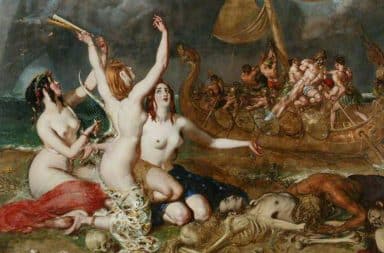John McEnroe, US Men’s tennis player:
“You can’t be serious, man. You cannot be serious! That ball was on the line! Chalk flew up! And the whole question of lines, i.e. borders, comes from an outmoded hermeneutic treating the nation-state as a discreet political and economic actor, which, in our postcolonial situation of multi-national capital, needs to be replaced with a new critique, and a new politics of immanence, of traversal and liminality. This celebration of marginality for its own sake, this emphasis on the other, or outside, exterior to the service box, is radical only in its posture. I mean it’s really a primitivist fantasy that locates the real, politically that is, in the space of alterity. Seriously though, the ball and the line were deeply imbricated. C'mon, man!”
Allen Iverson, NBA Hall of Famer:
“It's easy to sum it up when you're just talking about praxis. We’re sitting here, and I'm supposed to be dedicated to radical social change through sick handles, and we're in here talking about praxis? I mean listen, we’re talking about praxis. Not labor, not the transformation of surplus value into capital, not the magnitude of accumulation, but praxis? I mean our freedom as political actors, political artists, entertainers, whatever, could only be supported by incredibly exploitative structures of wage labor, and we’re in here talking about praxis? I'm all for the vita activa, but we've gotta change our conditions first. Then you can come and talk to me about praxis.”
Aaron Rodgers, Green Bay Packers quarterback:
“19 letters here. This is for everyone out there in Packer-land, and yourself. A, G, O, N, I, S, T, I, C, P, L, U, R, A, L, I, S, M. Agonistic pluralism. So we're 1-2. Everyone thought we'd run away with the NFC North. It's a good thing. NFL needs the sense of competition. Forget the staid liberal notion of polite negotiation between representatives of political interests. This is about the democratic process as an arena for conflict, and the affirmative capability of such conflict, whether win, lose or tie. So relax, Packers fans. The struggle is beautiful.”
Michael Phelps, US Olympic swimmer:
“I put all my gold medals on for the first time this morning, and they’re pretty heavy around my neck. It got me thinking about gold, like as a material… The Olympic medal is still made of gold, even though we abandoned the Bretton Woods system, and with it the gold standard, in the 70s, so it’s like the gold was the money-form of value before fiat currency, but somehow it endures as part of the spectacle of the Olympics, and all the while the preparation for the games reorganizes the host nation’s economy around low-paying service work, before accelerating gentrification in the working class areas where the infrastructure is built, eventually displacing the people who originally lived there, all under the guise of this amazing event bolstering national solidarity.”
Yeah, I know Débord’s notion of the spectacle is overused, and mistaken as the image of this kind of monstrous, monolithic power, but it actually applies to the Olympics, which has this overlay of ahistorical, cyclical time, concealing the contingencies of late capitalism from the fairly passive spectator. So the gold used for the medals, no longer operating as an exchange standard, still serves to obscure the relations of production, as it did more directly when it was commodity-money, but now as this floating signifier of individual athletic achievement, upholding market notions of self-interest and competition as timeless principles!”
Mike Tyson, former heavyweight boxing champion:
“Real freedom is having nothing. I was freer when I didn’t have a cent. None of this money, none of this fame, just a young kid, training all the time. I was free because no one was watching me, and I could box the way I wanted to box, not the way the media wants me to. Does this seem strange? You're looking at me all funny like you think it's strange. Well man, I'll ask you to recall the epilogue to War and Peace, where Tolstoy calls kings ‘history’s slaves,' and tells us that the more power you have, the more fully you are determined by circumstance, by your obligations to your subordinates, and by the overawing power of historical change.”
Wayne Gretzky, Canadian ice hockey player, leading scorer in NHL history:
“I couldn't beat people with my strength; I don't have a hard shot; I'm not the quickest skater in the league. My eyes and my mind have to do most of the work. This is how I can be most productive under a new regime of what some have called cognitive capitalism. While the rise of financial speculation is duly afforded attention by theories of post-Fordism and neoliberal restructuring, those inquiries have tended to treat the phenomenon as a given, rather than interrogating its causes. What we find as its necessary condition is the dematerialization of labor, whereby a specialized knowledge society can now produce value, so that knowledge, new kinds of expertise, etc., are at least theoretically tradeable assets. The uncertainty as regards the consistency of this kind of production has to be expressed in financial structure. In fact, financialization is ‘seen as being subordinate to the achievement of permanent innovation (the substance of value).'”1
George W. Bush, former US President, avid golfer:
“I call upon all nations to do everything they can to critique the ideologically convenient reading of terrorist acts in purely theological terms without regard for their political motivation, namely a deep dissatisfaction with authoritarian projects amongst political actors who themselves were but a few years before 9/11 oriented towards secular nationalism, and have now adopted a mask of religious fanaticism as a pseudo-scriptural justification for their acts. Thank you. Now watch this drive.”2
1 Boutang, Yann-Moullier. Cognitive Capitalism. Cambridge: Polity Press, 2012.
2 Bush, in his pun on “drive,” suggests an identification with das Es, that which supposedly must be repressed—not his own desires, but the whims of the colonial subject within a post-911 imperial order, as if the conflicting imperatives were constitutive of a larger scheme. This point was taken up by Slavov Zizek, who in Iraq: The Borrowed Kettle mapped Adorno’s observation of a mutually beneficial arrangement between das Überich and das Es onto the relationship between the American global empire and its colonies, a new order which would marginalize the third option of European modernity (corresponding to das Ich).


